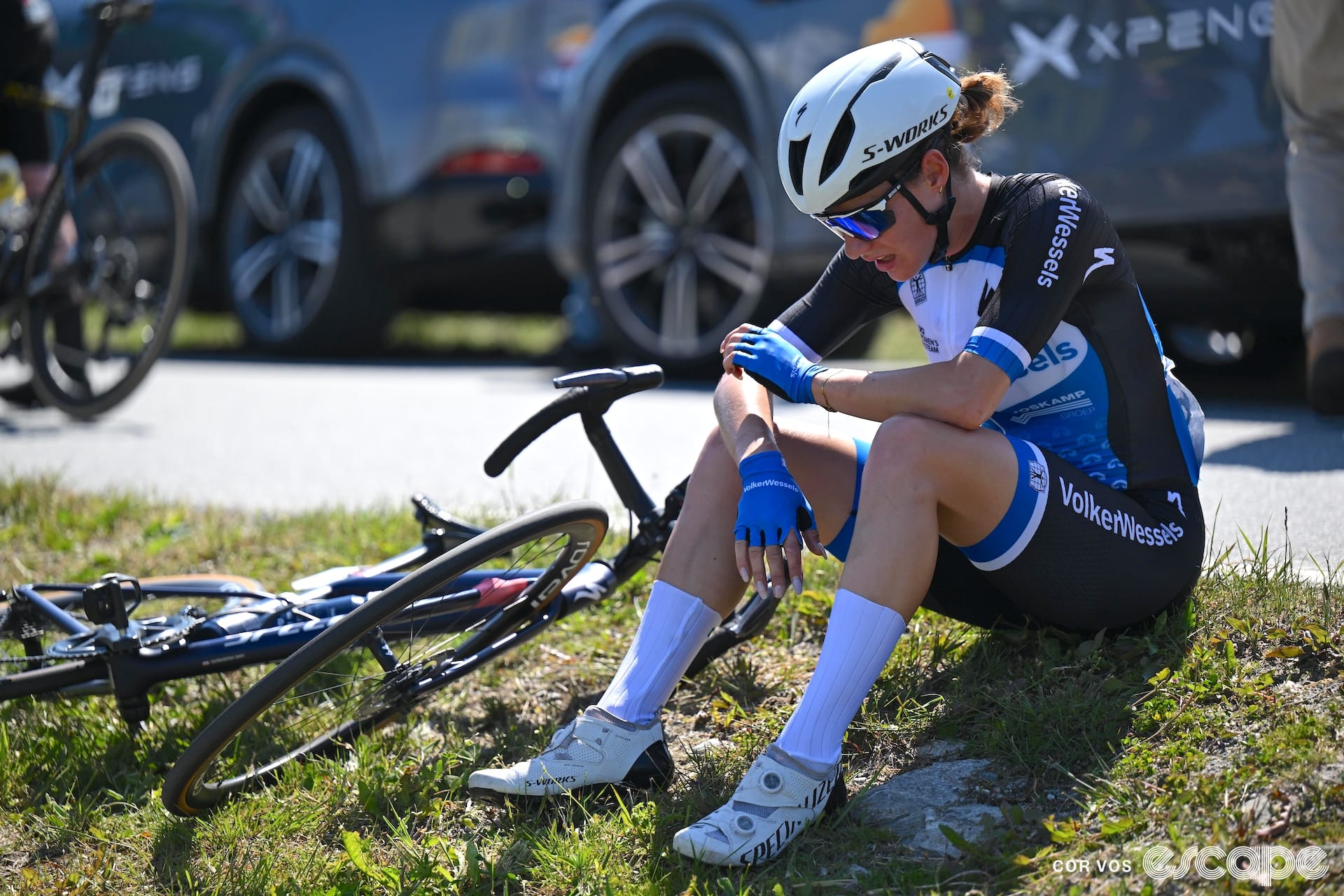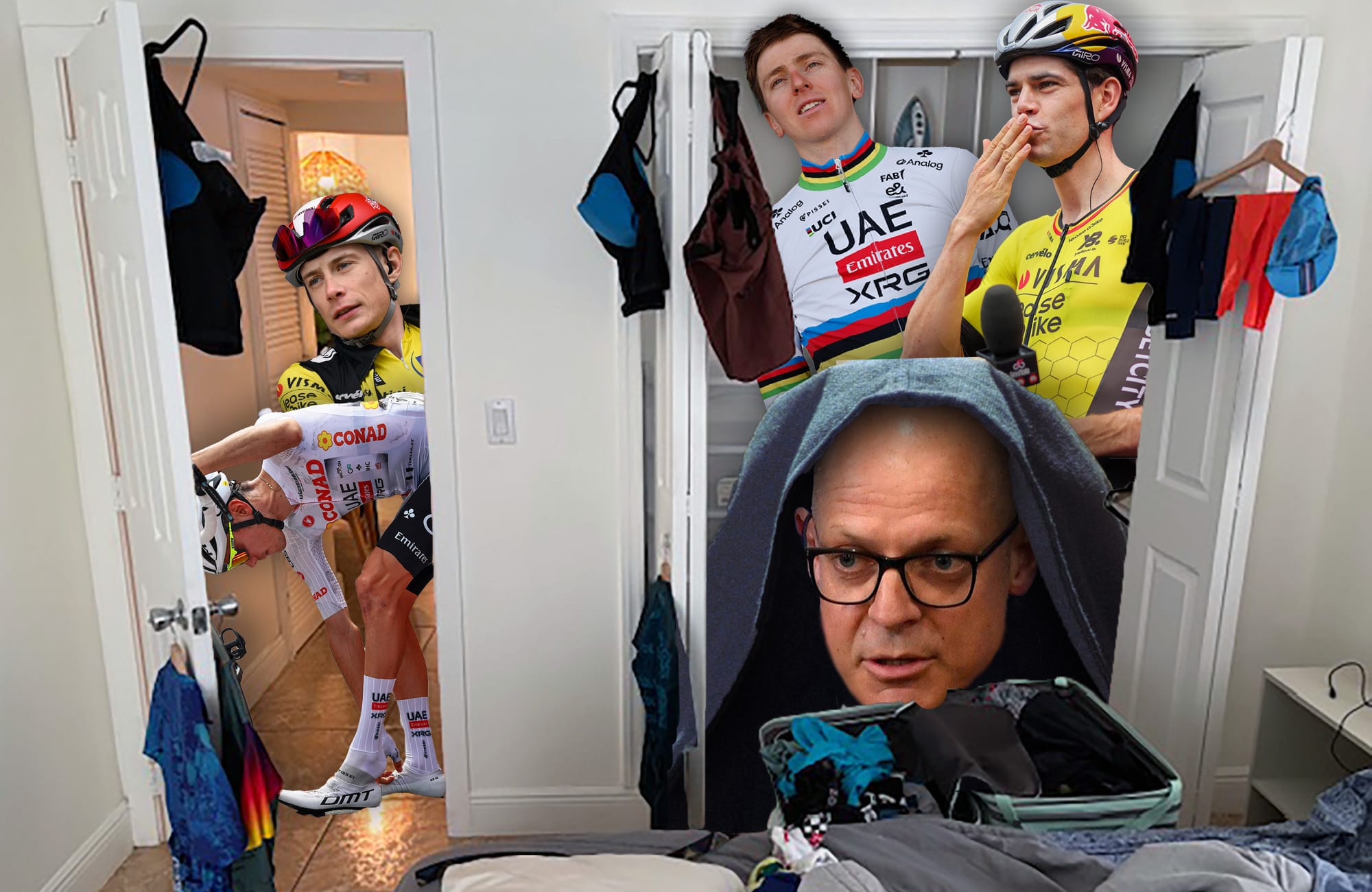Ivy is dangling off the back of the peloton, her legs screaming, her brain racing. She’s desperately trying to move up to where she can actually affect the race, willing herself to do so, but that's far easier said than done.
Her role was clear: be on the front for the first 25 km, respond to any attacks that went. But the moment the flag dropped, she was under pressure. The pace was too high and before she knew it, she was sliding back through the field.
It’s Ivy's first year as a professional and in this moment, as she fights desperately to stay in the race, she feels way out of her depth; like she doesn’t belong. The fact a teammate is having to do her job for her only heightens that feeling.
Just as Ivy is despairing, just as the back of the bunch is slipping beyond her grasp, her team radio crackles to life in her ear. “You need to move up – you need to be up there,” her sports director barks. “Why are you not there?”
The words hit hard. Ivy’s anxiety spikes.
This isn’t an account of a real bike race. It’s a glimpse of a fictional stage play written by a group of British researchers as part of a new study about stress in the women’s road racing peloton. It’s an unusual piece of research but one that’s strangely affecting, and more than a little illuminating.
Did we do a good job with this story?






